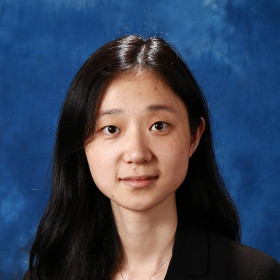Biography
- Professor in Department of Electronic Engineering at The Chinese University of Hong Kong
- Research interests include optoelectronic, electronic and electrochemical devices based on organic and nanostructured materials; sensors and biomedical devices; spectroscopic characterizations of the physical processes in nanostructured thin films, structures, and devices
- SRFS project — to develop four key technologies, including wearable multi-channel functional near-infrared spectroscopy systems, multispectral photoplethysmogram probes, sensor-integrated smart knitwear; and physiological and disease prediction models. The research promises to enhance personalized healthcare by providing reliable, cost-effective, and highly accurate health assessment tools, significantly improving the quality of life for millions worldwide and reducing the burden of ageing-related diseases
- Awards and Honours:
- RGC Senior Research Fellow (2024)
- Outstanding Fellow of the Faculty of Engineering, CUHK (2021)
- Excellent Young Scientists Fund, China (2020)
Project Title
- Development of Optical Sensing Technologies for Early Detection and Ambulatory Monitoring of Cardiovascular and Cerebral Diseases
Award Citation
Professor Ni Zhao is honored for her pioneering research on developing advanced optical sensing-based wearable platforms aimed at addressing critical global health challenges related to ageing-related diseases such as cardiovascular diseases (CVDs). Population ageing has emerged as a significant public health issue, with the World Health Organization predicting that by 2030, 1 in 6 people worldwide will be aged 60 or over. This demographic shift necessitates fundamental changes in healthcare models, particularly for managing chronic diseases associated with ageing.
Professor Zhao’s work focuses on creating non-invasive, and real-time mobile health monitoring devices that can be deployed to individuals, enabling early prognosis and intervention. Her research integrates device innovation with physiological modeling and clinical applications, targeting comprehensive evaluation of cardiovascular and cerebral hemodynamic status through a sensor network capable of long-term, multi-location, and multi-parameter tracking.
Through the RGC Senior Research Fellow Scheme, Professor Zhao will lead a multidisciplinary effort involving the development of four key technologies: wearable multi-channel functional near-infrared spectroscopy (fNIRS) systems based on ultrasensitive bias-stable photovoltaic transistors; multispectral photoplethysmogram probes using microsized spectrometer devices; sensor-integrated smart knitwear; and physiological and disease prediction models. These advancements will significantly outperform existing commercial health monitoring systems in terms of accuracy, continuous monitoring capability, energy efficiency, and wearability.
The proposed research promises to enhance personalized healthcare by providing reliable, cost-effective, and highly accurate health assessment tools, thereby reducing the societal and economic burden of ageing-related diseases and improving the quality of life for millions worldwide.
Short video of awardee











